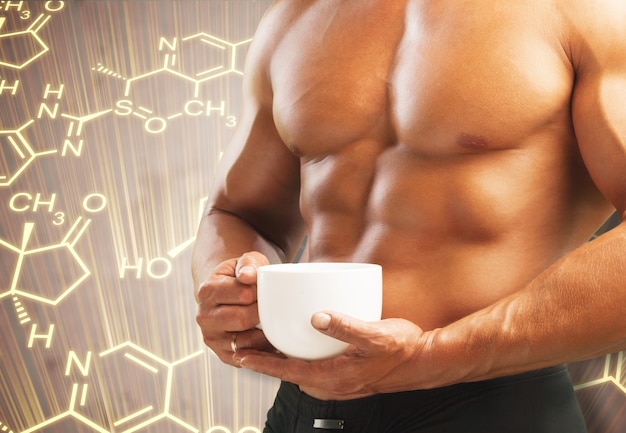Understanding Testosterone and Its Importance
Testosterone, often dubbed the “male hormone,” plays a crucial role in the overall health and well-being of men. It is primarily produced in the testes and influences various bodily functions, including muscle mass, bone density, and the regulation of fat. As men age, testosterone levels naturally decline, leading to a range of physical and mental health issues.
One of the most significant physical benefits of testosterone is its impact on muscle growth and strength. Higher testosterone levels are associated with increased muscle mass, aiding men in their fitness goals. Additionally, testosterone is vital for maintaining bone density, which helps prevent osteoporosis and fractures.
Beyond the physical, testosterone also plays a key role in mental health. It can influence mood, energy levels, and cognitive function. Low levels of testosterone have been linked to increased feelings of depression, fatigue, and irritability. By understanding the multifaceted benefits of testosterone, men can prioritize their health and explore natural ways to boost their hormone levels effectively.
Natural Ways to Boost Testosterone Levels
Many men seeking to boost testosterone levels naturally often overlook the significant role that diet plays in hormonal health. Incorporating nutrient-dense foods such as lean proteins, healthy fats, and cruciferous vegetables can provide essential nutrients like zinc and vitamin D, which are vital for testosterone production. Foods rich in Omega-3 fatty acids, such as salmon and walnuts, have also been shown to support hormone balance.
In addition to dietary changes, engaging in regular physical activity is crucial for boosting testosterone naturally. Resistance training, such as weightlifting, has been proven to stimulate testosterone release effectively. Aim for high-intensity workouts that not only build muscle but also enhance overall vitality.
Lifestyle modifications are equally important. Reducing stress through mindfulness practices or adequate sleep can help lower cortisol levels, which, when elevated, may suppress testosterone production. Establishing healthy sleep habits by aiming for 7-9 hours of quality rest each night can significantly impact hormonal balance.
Lastly, limiting exposure to environmental toxins and chemicals, often found in plastics and certain personal care products, can also help maintain optimal testosterone levels. Simple changes, like using glass containers instead of plastic and opting for organic products, can create a healthier living environment and support overall hormonal health.
The Role of Nutrition in Testosterone Production

Nutrition plays a pivotal role in testosterone production, influencing levels through the foods we consume and nutrients we prioritize. Certain vitamins and minerals have been directly linked to higher testosterone levels, making dietary choices crucial for those seeking to boost their testosterone naturally.
Zinc is one of the most critical minerals associated with testosterone. Found in foods like oysters, red meat, and pumpkin seeds, adequate zinc levels are vital for maintaining hormonal balance. A deficiency in zinc can lead to a significant drop in testosterone levels, emphasizing the importance of including zinc-rich foods in your diet.
Vitamin D also plays an essential role in testosterone production. Sunlight exposure increases vitamin D levels, but it can also be obtained through fatty fish, egg yolks, and fortified foods. Studies suggest that men with optimal vitamin D levels tend to have higher testosterone levels, highlighting its impact on hormonal health.
Moreover, healthy fats, particularly omega-3 fatty acids found in fish, nuts, and seeds, are integral to testosterone production. These fats support overall hormone synthesis, contributing to improved testosterone levels. Incorporating avocados and olive oil can also provide beneficial monounsaturated fats that support hormonal balance.
Finally, cruciferous vegetables like broccoli, cauliflower, and Brussels sprouts contain compounds that help lower estrogen levels in men, which can indirectly promote higher testosterone production. A balanced approach that includes a variety of these nutrient-rich foods not only supports testosterone levels but also fosters overall health and well-being.
Exercises That Help Increase Testosterone
Engaging in specific workouts can significantly aid in boosting testosterone levels naturally. Strength training emerges as one of the most effective methods. Studies indicate that heavy weightlifting can trigger hormone release, enhancing testosterone production. Compound movements like squats, deadlifts, and bench presses are particularly beneficial, engaging multiple muscle groups and promoting greater hormonal responses.
Additionally, incorporating high-intensity interval training (HIIT) into your routine can also be advantageous. This workout style alternates between short bursts of intense activity and rest, elevating heart rates and stimulating metabolic processes. Research has shown that HIIT can lead to acute spikes in testosterone following intense workouts, making it a valuable inclusion for men aiming to increase their testosterone levels naturally.
Moreover, circuits that blend both strength training and cardio can further optimize testosterone release. Utilizing exercises that push your limits while maintaining a focus on overall fitness can foster an environment conducive to hormonal balance. Whether through weights or bodyweight movements, consistency in these modalities plays a crucial role in maintaining elevated testosterone levels.
Enhance Your Workouts with This Informative Video
To better understand how different workout styles impact testosterone production, check out this insightful video.
Lifestyle Changes for Natural Testosterone Boost
Sleep plays a vital role in hormonal health. Aim for 7 to 9 hours of quality sleep each night, as inadequate rest can hinder testosterone synthesis. Establishing a calming bedtime routine and reducing screen time before bed can enhance sleep quality and duration.
Stress management is equally important. Chronic stress elevates cortisol levels, which can negatively impact testosterone. Techniques such as mindfulness, meditation, and yoga not only alleviate stress but also promote overall well-being. By adopting these changes, men can create a supportive environment for maintaining optimal testosterone levels, ultimately enhancing their fitness and quality of life.
Frequently Asked Questions
Here are some common questions that may enhance your understanding of boosting testosterone levels naturally.
- What are the best exercises to naturally increase testosterone levels? Strength training, particularly compound movements like squats and deadlifts, as well as high-intensity interval training (HIIT), are highly effective.
- How can diet specifically affect testosterone levels? A diet rich in zinc, vitamin D, and healthy fats, such as those found in nuts, avocados, and olive oil, is essential for testosterone production.
- What role does sleep play in testosterone production? Quality sleep of 7 to 9 hours is crucial, as inadequate sleep can lead to lower testosterone levels and impaired hormonal health.
- How does stress influence testosterone levels? Chronic stress increases cortisol, which can hinder testosterone production; thus, managing stress through mindfulness, meditation, or yoga is beneficial.
- Are there specific foods to avoid to maintain healthy testosterone levels? Yes, reducing sugar intake and avoiding highly processed foods can help maintain optimal testosterone levels.





